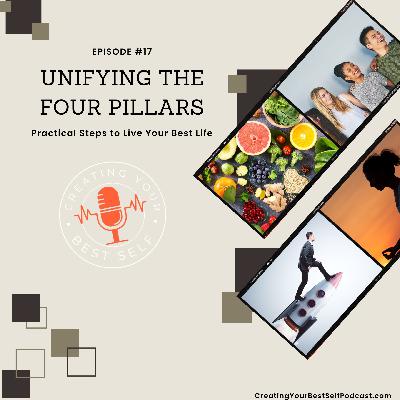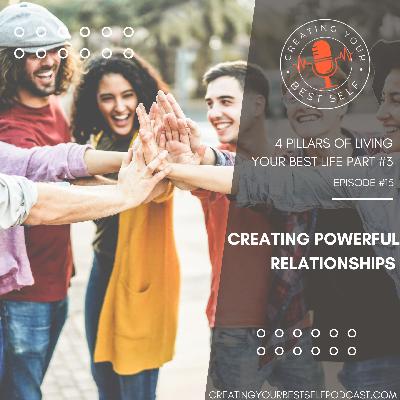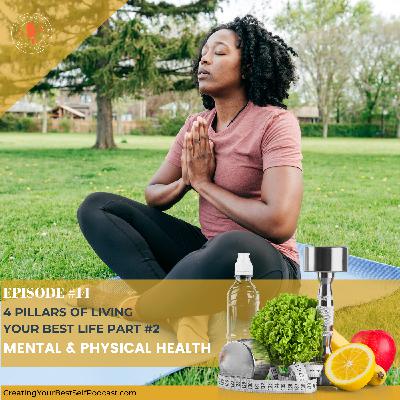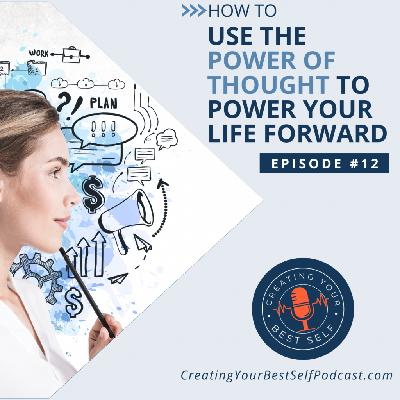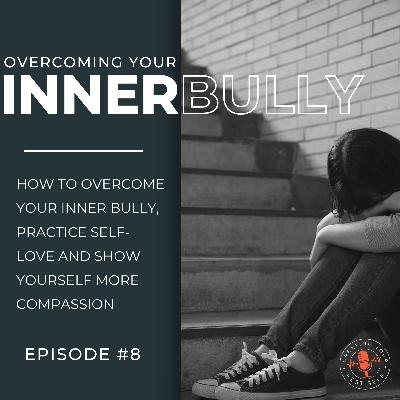Habits & Success – How To Create Habits That Stick
Description

Episode 03: Habits & Success - How To Create Habits That Stick! Show Highlights.
"The very best decision I've ever made is to learn all about Habits, how to make them and how to break them, because it has changed everything." ---T. Lavon Lawrence, Creating Your Best Self Podcast
David N. Johnson and T. Lavon Lawrence discuss what you need to know to create healthy habits that you can count on. We go over the importance of forming good habits, how they impact your life, and how to start creating habits that are obvious, attractive, easy, and rewarding.
Good or Bad, Habits Impact Your Life Automatically
The happiest, most successful percentages of every major segment of human population are so because of habit. Every religion and philosophy reflects and teaches about habit as a cornerstone of success, wisdom, and a good life.
Yet, most of us have no idea how to take control of what is essentially the most valuable skill in life, which is to be able to willfully think, feel, and behave in whatever way we need to succeed at living life on our own terms.
Because of that global, systematic failure at a proper education, most of us are set adrift in adulthood with no instructions on how to set our sails so that we take a course that delivers us where we want to go in life. As adults, we are now captains of our fate and must learn to set our own sails.
This is How You Form a New Habit - Where Our Habits Come From!
Habits fill your basic human need to conserve energy and ease effort necessary to survive, so that you can survive more effectively by maintaining higher energy reserves.
Habits are automatically formed when an action you take meets or exceeds your basic human need, such as when eating a cookie distracts you from a sudden craving.
Simultaneously, your brain releases a motivating chemical called Dopamine into your central nervous system to compel you to use that method the next time the need arises.
By repeating the action thus dictated by your brain, you initiate (and eventually lock in) a neurochemical feedback loop that makes sticking with the repetitive behavior easier.

Dopamine Is Your Friend and Enemy During Intentional Habit Formation.
Your brain's reward system makes Dopamine your natural taskmaster in strengthening any habit it believes will relieve its discomfort over not having a human need met in the moment.
Your brain will easily ignore the most logical, practical answer to solve its state of craving in favor of a solution that merely distracts it momentarily with a fleeting sensation of pleasure.
For example, the earlier mention of reaching for cookies when feeling a need for something tasty certainly distracts your brain from the immediate craving.
What's more, your brain will irrationally accept that sugary experience as a solution and casually make it into a long-term, unhealthy habit.
On the other hand, if you happen to reach for an apple and the same process activates, your brain will chemically induce you to consider that option next time.
"When we're in pain, our brain automatically looks for a way out of it. And if we find a way out of it, we get rewarded and motivated to do it again. If we if we take advantage of that process, then forming New Habits is easy and rewarding." ---T. Lavon Lawrence, Creating Your Best Self Podcast
Unhealthy Habits vs Healthy Habits - Only One Actually Works
The healthy satisfaction and the unhealthy satisfaction can both enable a habit through repetition, only the former (unhealthy habit) causes damage while the latter (healthy habit) satisfies your brain and body.
The difference being that unhealthy eating habits cause unhealthy physical and mental results while healthy choices do a much better job in satisfying real nutritional requirements that produce more energy for survival.

How You Picked Up The Habits You Want to Change!
When we are young toddlers, elementary, high-school, and college students, our habits are dictated to us by those in authority - parents, siblings, relatives, friends, local culture - and we had little say in the matter.
Entering adulthood, most people stay locked into the same habit patterns all their lives. For those of us who don't want to settle for that, staying stuck in the same old routines is completely unacceptable.
Fortunately, there has never been an easier time to break bad habits and form new ones that can bring you the life experience you really want, automatically.

Why You Should Intentionally, Systematically Form Good Daily Habits!
We can only not only break those bad habits you're talking about, but we can form the good ones. And we can do it at the same time. And it's the same exact process." ---T. Lavo



